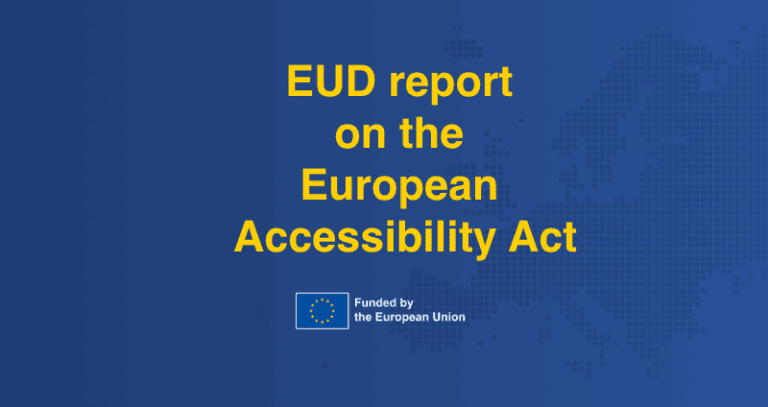We are pleased to announce the release of our latest report assessing the implementation of the European Accessibility Act (EAA) and its impact on deaf sign language users across the European Union and the European Economic Area.
The EAA, adopted in 2019, introduces essential accessibility obligations for a range of products and services—particularly in the digital environment, e-commerce, banking, and national transport. However, despite these advancements, the report reveals that deaf people continue to face systemic barriers in accessing information and communication, primarily due to the absence of sign language access and uneven enforcement at national level.
Our report draws on legal analysis and qualitative input gathered in May 2025 from National Associations of the Deaf. It identifies significant gaps in the current implementation of the EAA, including limited access to customer services, inaccessible digital platforms, and insufficient provision of sign language across key sectors. While some good practices have emerged—particularly in Spain—these remain isolated examples rather than the norm.
To address these shortcomings, the report offers comprehensive recommendations for both the European Commission and Member States. These include the adoption of delegated acts to strengthen accessibility requirements, the enforcement of 24/7 video relay services in national sign languages, and the urgent establishment of the Working Group mandated by Article 28 of the EAA.
As the full application of the EAA begins on 28 June 2025, EUD calls on EU institutions and national authorities to act swiftly to ensure that deaf sign language users are not left behind. Equal access to services must be guaranteed not only in law but also in practice.
We invite all stakeholders to engage with the findings and join us in pushing for the consistent and meaningful implementation of the EAA across Europe.
Please find the full report and detailed recommendations enclosed.













